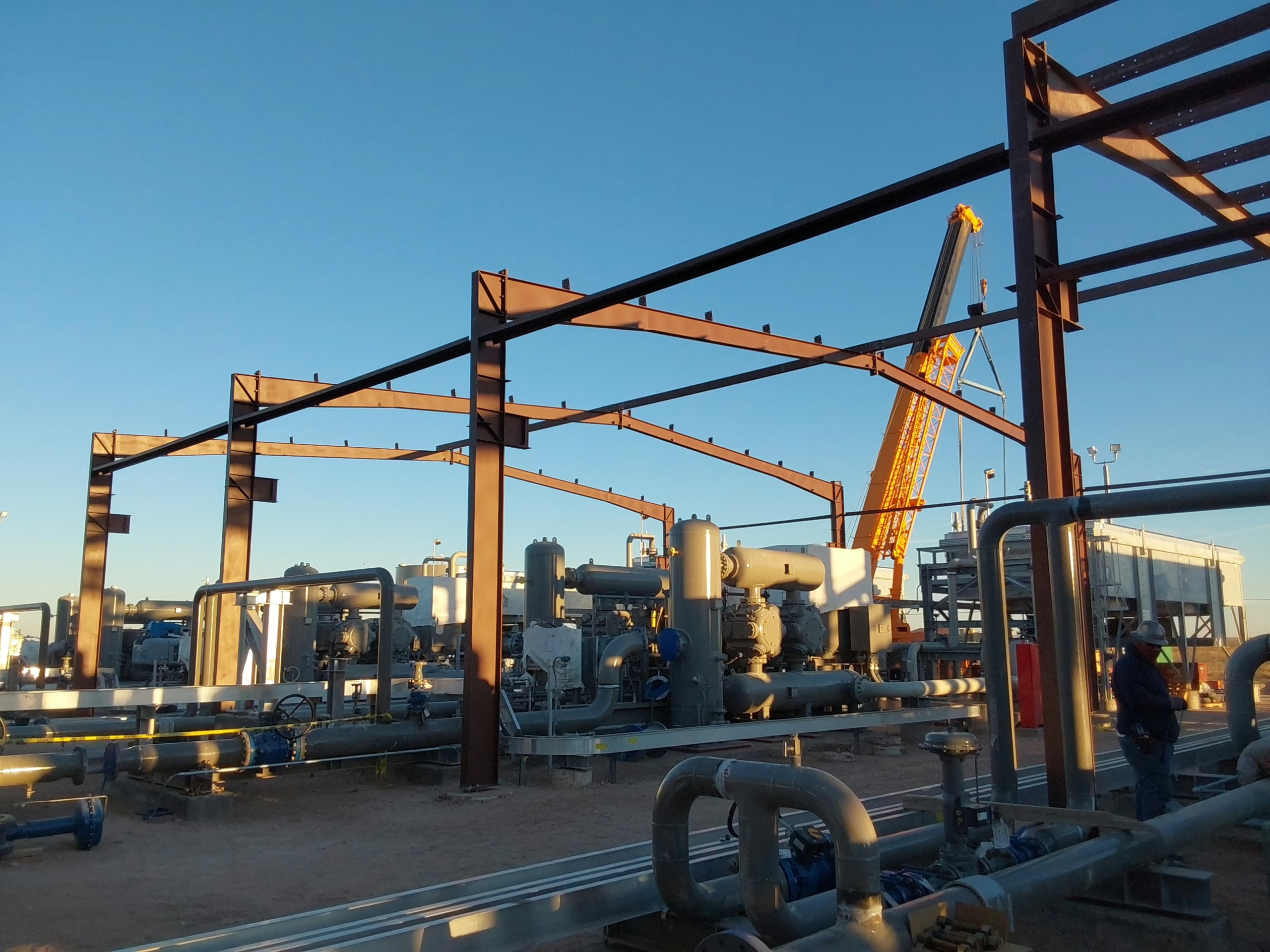
When Do You Need a General Contractor?
(This is part one of a two part series on general contractors. See part two HERE.)
At what point should you get a general contractor?
The temptation in the construction industry is to try to manage the process without the outside help of an expert in the field. The allure of cutting out a general contractor’s fee for his or her work is a common one. But often a go-it-alone kind of project owner will run into major problems. That is because lacking the seasoned knowledge and expertise, performing a project without a general contractor means that you have no one on your side who can spot and address potential issues before they become major challenges for your project. While some projects are possible to be “user-managed”, at what point do you need to talk to a general contractor to get your project completed?
Below is an example of a go-it-alone project where one of our best clients was overmatched and out of her league for projects when she requested that we step in.
“As a non-profit we tried to manage this job to save money; we soon learned that this approach was not desirable. In choosing to manage the project ourselves and a shoestring budget we had sacrificed quality. At this point, the project was completely stalled, and we were very vulnerable, as we–the client–were just getting our feet wet in the world of construction management.” See the full interview HERE.
The construction industry is a difficult and lonely one to navigate without help. Experience is worth much more than most people realize when building a major or capital project. The key is to not go at it alone. The savings brought by utilizing a general contractor greatly outweigh the cost of employing one. These savings are in the form of speed, lessened opportunity cost, headaches / stress averted, expertise, issues addressed before they become problems, and the bandwidth freed up for yourself from having your project managed by someone else. This is exactly why you need a general contractor: the construction project is too important to your business, reputation, or future. You cannot afford to miss on this one.
When do you need a general contractor?
1. Your project is having issues
There are many warning signs before a project becomes fully submerged. But projects having issues, while very common, are often a sign of worse things to come. The cut corners here or there, the untamed issue now, the difficulties here will all snowball into a much worse problem later if not addressed. Without expert help, the customer is left to fend off various potential problems with personnel, constructability, authorities, contracts, etc. Depending on your skill and previous experience, the whole process can move sideways very quickly and turn a great project into a nightmare.
Are the fixes you are putting in place truly going to prevent more of the issue? Or is it that fix simply treating the symptoms? Without expert help, it is often a toss-up to see if your fix really did do the trick.
2. Your project is underwater.
Perhaps the most easily understood reason to get expert help is this: your project is underwater with no way forward in sight. The adage, “You can’t get there from here,” most definitively applies. Your project is simply not moving forward nor will it without serious help.
A general contractor here is not some band-aid, superficial fix; no, this is in-depth, inpatient surgery to correct systematic issues in the implementation of your project. Examples of this can be poor quality work that must be redone; unhappy client; unhappy owner’s rep; city, state, or other officials freezing the job from moving forward. There are a host of reasons why a project needs a general contractor as a clean start.
Compared to the cost of a general contractor being brought into the mix the rescued project, saved time, and possibility to improve the project are all much more valuable than any expense to pay. Subcontractors are very sharp at understanding if there is competent, experienced leadership in place; they can tell when the new sheriff in town will keep them honest. It is no knock on the owner’s capability to bring in outside help. The issue is that if this project could move forward, it would. But now there is no end in sight. Bringing an expert into the process is certainly worth it.
3. Your project needs a steady hand to guide it.
Any project can be painful. That is because there is real change happening; and change is never fun to endure. We all know the result with our eyes on the prize, but the intermediary steps between your vision and the reality need a steady hand of guidance through the process.
It is very easy to bite off more than you can handle and quickly reach the end of your depth. Subcontractors (and people in general) are very good at smelling the blood in the water or the inexperience of a company or person, no matter how hard you try to suppress it in yourself. As an owner’s agent for change, empowered to get the project done, the general contractor can be that steady hand, not allowing excuses, keeping the schedule moving, and bringing valued insight into the project before things get too difficult.
4. Your Project kickoff stage needs a license.
The most important part of a project is to begin right. We are talking about permits, licensure, safety, quality assurance, etc. This step is often one of the slowest and most frustrating; everyone involved must have their documentation exactly right or else suffer the penalty of multiple setbacks with city hall or the building authority. Additionally, some states require specific licensure before you can even talk about a project being built. As the owner, you are probably not going to go enroll in classes, have or want to take the time to gain the years of experience to be able to sign off on licensure for your current project. This is perhaps the well-known and most common reason for a general contractor: the general contractor holding licensure to satisfy the professional requirements by the building authority. In addition to this, the general contractor can guide you through the various phases of preconstruction and permitting because of years of experience.
5. You have subcontractors to vet.
Similar to the fact that you cannot control subcontractors completely, how do you know what subcontractors to select for your project? The commonplace answer is to look up reviews on a ratings site, Google, or simply ask around. And while website reviews are very helpful, there are thousands upon thousands of companies with no such online history. Plus, if you solicit project references, what company is going to give you a bad one? Companies and individuals can be liable to lawsuit if given a poor reference that does damage to their business. Instead, you need to have real world experience with subcontractors; but how are you going to get it before you actually work with them?
The answer is a general contractor. The general contractor is deeply connected in the industry, location, and minutia of construction; and having an expert eye examine the credentials, work quality, and history will again prevent issues later that could have been prevented. Often, we have worked with those same subcontractors for good or for bad, now keeping a quality subcontractor list that we return to and providing a blacklist to stay away from.
6. Your subcontractors are not performing.
Getting someone to do what you want is the challenge of the ages. Anyone walking this line of challenge must struggle with the free will of an independent being or organization. It is an eternal battle that even the most powerful of beings must contend with. Even if you were 100% aligned with your subcontractors in your interests, often we ourselves do not have the wisdom to know what decisions to make for the project without expertise. But the reality is that anyone other than yourself has needs and desires that are not 100% aligned; and when those interests diverge, the difficulty arises.
From sales and customer service to contracts and leverage over someone with whom you are interacting, we have come up with all sorts of inventive ways to get people to do what we want. But that is no guarantee that they will indeed do what we want. That is the rub: some people use their free choice to cut off their nose to spite their own face. In plain language, there are a lot of stubborn people in the construction industry.
If you work with subcontractors, the harsh truth is that one day they will not show up for you. It is a bare fact of reality that their interests are not fully aligned with yours no matter how good your working relationship is with them. Yes, both of you want a good relationship and potential future engagements, but when push comes to shove, the almighty dollar is what your partnership is all about. And plenty a subcontractor has abandoned good relationships and future work with clients simply because the money was not there.
For example, while the customer demands warranties of work, this is one of the very last things that a subcontractor will do; they are loathe to ever return to a project once completed. The question at this point is: did you ensure your project is contractually covered for warranty, with lien waivers, with financial incentive for staying engaged with you as a customer? Did you pay out too much too fast so that what financial incentive remains is insufficient for the cost to return to the site?
General contractors, when they are a part of your project, know how to get subcontractors to work. We have learned a thing or two about motivation, responsibility, contracts, leverage, and plain commitment to what we say we will do. Bound together with a general contractor, burden of the project is shared; and the beauty of the general contractor/customer relationship is that the customer now has an agent for change on the ground that will fight for him or her to get the job done right. Subcontractors now have a new contender to fight with, one that knows the tricks and guides the customer expertly from contract to commissioning. The popular insurance motto rings true here: “We know a thing or two because we’ve seen a thing or two.”
7. Your contractual terms are not being honored.
Every contract has terms for action and production. That is why we create them. But how do you know your contractual terms are being abided by? How do you know your specifications that you so painstakingly created are being upheld? Do you have an eye for quality so much so that no one can pull a fast one on you? Is there someone patrolling your site constantly to ensure performance of said requirements? Do you have enough time to monitor the process correctly? Do you even have that desire to do the work as the customer? Contract law is a minefield of intricacies and legalese that you must get right the first time. The key is to let someone with an expert eye on construction law protect your project.
As a general contractor we are your agent on the ground; and we are constantly watching for quality and contractual fulfillment. Until the job is done in a satisfactory way, we will not pay someone; and that is because it is our name on the project as well as any subcontractor we bring to the table. Your project truly becomes our project. This is because, at the end of the day, our reputation is on the line as well.
8. Constructability has not been a focus of your project.
“Constructability” is the concept of how well your project can be built into reality. It means that what is conceptually written on paper is not always possible in actuality.
Your project is far too important to leave only to the brainiacs in the office. A puzzling thing to say for sure, but the immensely smart architects and engineers, while most often right, can lose sight of reality. If brought in early enough, the general contractor safeguards your project from being simply a beautiful abstract idea that has no possibility to be built into reality. The general contractor knows site conditions, has been around the block for construction, and thus can save your project with constructability reviews. We can see potential areas of difficulty—even proverbial construction landmines—before they happen.
It is a much easier mistake to fix in conceptual drawings than on the field with time a-wastin’, time clocks a-chargin’, and a very unhappy customer who wants this job done yesterday. Heading off issues in constructability is worth its weight in gold through both time efficiency and actual dollars spent to fix problems that should have been seen at the beginning of the process.
A general contractor can prevent your project from capsizing before it is ever started.
9. There are threats of liens on your project.
Customers often do not realize just how tricky a project that has gone sideways can become. The construction lien filed against your project by an angry contractor or subcontractor can prevent a number of things, chief among them is project commissioning. Certainly, we want to do projects right, but there are many who do not care about the rightness or wrongness of filing a lien. They simply want more money out of you.
The lien filed against your project becomes a major roadblock to occupancy. Many contractors do not even have a legal leg to stand on before filing a lien, but still use them as intimidation tactics to extort additional cash out of the customer. Ask yourself if you can you afford to delay commissioning your project. Is your capital and revenue stream good enough to endure a lengthy legal fight without having a finished project in place and producing? Subcontractors know this very well.
A good general contractor will demand and produce a lien-free project suitable for the customer. And we will go to bat for you until it is done right. Before anyone gets paid, they release their legal claim of lien simply because we have led them rightly, ensured quality, and protected the project so well as to safeguard your interests. And before they get to sign away their claim of lien, we ensure that their work is done up to specifications and quality standards. This is one of the most skilled and important functions of a general contractor as the go-between agent for the customer. We become an expert shield from the dirty legal infighting of a subcontractor simply trying to play hardball.
10. Design build is something you’ve never heard about.
The last and likely most unknown reason for why you need a general contractor is the opportunity to engage in a design build project. “Design build” is the process in which the general contractor becomes involved at a much earlier phase than what is traditionally done. The general contractor in this case actually has a hand in designing and engineering the project. Among the other potential bonuses in this project is that the general contractor can procure your materials, suppliers, and subcontractors as well, even while the design is being done. Design build becomes an all-inclusive contract that serves the project from end to end.
The benefits of design build: Ownership.
The design build option ensures continuity throughout the project. The quality of the drawings will only be matched with the quality of the construction. It is the difference between a rental car and a car you own. Everyone knows that a rental car can mount speed bumps with ease and high velocity. You don’t have to park in fear of door dings. And the rental company will vacuum the crumbs and drink you spilled on the hurried way to the airport. But for your own car, one in which you will be responsible and hold the deed for, you will take those speed bumps slowly, park in the far-out spaces, and not allow your kids to eat in the car. Why? The difference is, simply put, ownership.
When a general contractor does the design work, they are automatically engaged in constructability at every step of the way simply because he or she is going to have to build what is thought up. It is because they own both the design and construction that they will do it rightly. What contractor will be lazy in allowing mistakes in design or low constructability when he or she is on the hook to build it later?
Additionally, the opportunity for efficiency and cost reduction is presented by a contractor who can start procuring materials and subcontractors immediately. When a general contractor knows what is coming down the pike, they can immediately begin the procurement process, saving you time, purchasing at lowest prices, and generally planning effectively for your project.
A customer who has a contractor who truly shares in ownership in the project will be much happier in the end because of such a joint burden of building the idea into reality. As a general tip in life, those who take ownership of problems, their mistakes, and their own process are truly the kind of people to associate with. In the same way, the design build process for general contractors is the way to ensure the best project for yourself simply because of the ownership and trust it instills.
Conclusion:
It makes monetary sense to employ a general contractor. These costs for his or her expertise are investments into your important project. We can truly save time, money, and ensure quality simply by bringing years of expertise to the project. From saving money on hard costs of procurement, labor, and time gained on your project to the unseen costs of amazing contract management and constructability reviews, you will see real savings outweighing the fee we request. Let us do it for you as you do what you do best.
At Constructable, we are a design build general contractor who can take your project through every phase of its lifecycle. From design and engineering to procurement and final completion, we take ownership of every project for our customers and provide expert construction management services for the best project possible. Let us take the burden of project ownership for you and we know you will enjoy both the process and the final product. Drop us a line HERE to begin your relationship with us.




